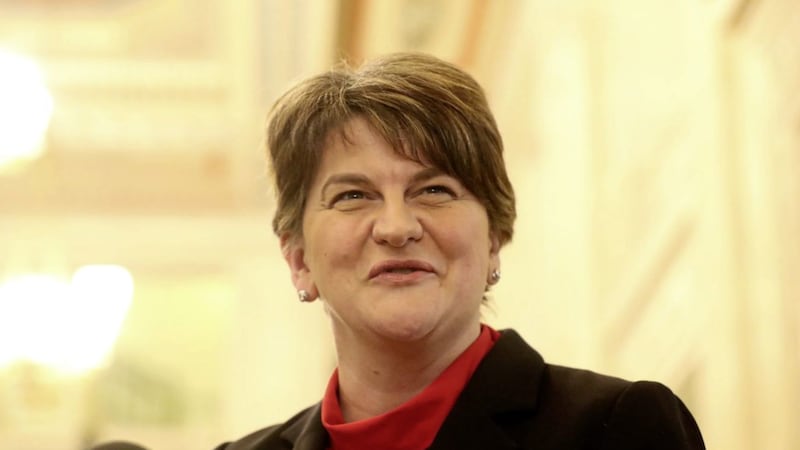Twenty-one years ago (May 30, to be exact) elections were held for the Northern Ireland Forum—from which the parties were to select delegates to the talks process which produced the Good Friday Agreement two years later.
The parties representing unionism/nationalism won 89 per cent of the vote, while Alliance and others took the remaining 11 per cent. A few weeks ago, on March 2, unionism/nationalism accounted for 85 per cent, with Alliance/Greens/People Before Profit and a few others taking 15 per cent. In other words, after 21 years the self-styled middle ground has grown by just under 5 per cent. In 1998 they had 8/108 MLAs; now they have 11/90.
What does that tell us? Well, it tells us that the peace process hasn’t really delivered a growth in the middle ground. Indeed, the increased turnout on March 2 benefited the unionism/nationalism tally more so than the middle tally. The DUP and SF—who have consistently taken a harder line than the UUP and SDLP—have eclipsed their old rivals; but those old rivals remain poles apart on constitutional and social issues, which means that they still look like turquoise imitations of Foster and O’Neill.
Yet, if a substantial tranche of non-voters is unhappy with Orange/Green politics—and some people argue that they are—then it’s odd that they have been reluctant to rally behind Alliance. Odder still, with the exception of poor old NI21 (which imploded before its first election), that there hasn’t been a new middle ground party to either challenge or complement Alliance.
I supported the Good Friday Agreement—albeit with huge reservations—because I believed that it opened the door to a new era of politics here. Yes, I was aware that the constitutional question would remain an important ‘issue’ for voters; but I still thought that a few years of working together and learning to trust each other would encourage the growth of tolerance between the parties and divide-crossing among the electorate.
But the opposite has happened. The political/electoral centre has polarised around the DUP and SF, the evidence of social integration is minimal and almost ninety per cent of those who vote continue to do so along unionist/nationalist lines.
Meanwhile, the everyday political agenda is dominated by legacy, language, commemoration, culture, history and the growing piles of the still-to-be-sorted-out. Barring an electoral miracle on June 8, or the emergence of new voices and political vehicles with a new era platform, then it looks to me as if the middle ground is never going to grow to the point at which it sets, let alone steers the agenda.
Alliance will survive, but it’s likely to remain stuck between unionism and republicanism. The DUP and SF will continue as polar opposites because there is no electoral gain to be had by softening their approach to each other. The UUP and SDLP will continue to be squeezed, probably reaching the point—and fairly soon I suspect—when they won’t even qualify for the executive.
Against that sort of background reconciliation will prove impossible to promote or sustain. And that’s because reconciliation is not possible between ‘community’ power blocs who pursue mutually contradictory political/constitutional goals. When Michelle O’Neill attends events like last Sunday’s Loughgall ‘commemoration’ she doesn’t do it to offend unionists. She doesn’t give a damn about offending unionists, because she doesn’t give a damn what unionists think about her. When Sammy Wilson and Gregory Campbell mocked the Irish language they didn’t give a damn about offending nationalists, because they don’t give a damn what nationalists think of them. They were playing entirely to their own gallery: not caring what the other side thinks and not caring, either, what the middle ground thinks.
Some plucky souls will try and convince me that the middle ground is, in fact, growing and comfort themselves with a five per cent shift over two decades (by the way, it actually reached its electoral highpoint of 14 per cent in 1973); census figures indicating the rise of atheism (stupidly thinking that non Protestants and Catholics don’t have very strong views on the constitutional question); and an ‘identity’ known as ‘Northern Irish’—which seems to mean whatever they want it to mean.
Polarity is here to stay. And it will stay irrespective of whether we reboot the Assembly or end up with direct rule or some sort of joint sovereignty. We have long passed the point—I think the St Andrews Agreement killed it off—at which anything resembling credible reconciliation or rapprochement was possible. What we have and what we will continue to have is a permanent battle over our constitutional identity and in that sort of battle there isn’t really much wriggle room for those who place themselves on the middle ground. “I don’t care what I am,” isn’t an option. “I’ll just go with the flow,” isn’t an option. “Live and let live,” isn’t an option.” In the next few years we’re all going to be forced to take a side.
Ironically, the peace process seems to have raised far more problems than it resolved.








